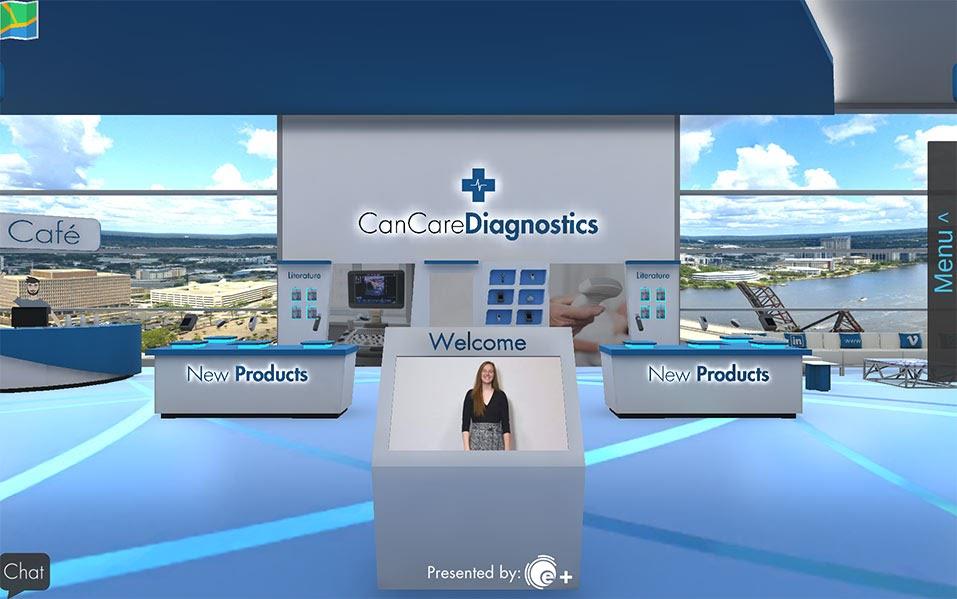Written By: Blake Miller | Aug 2, 2021 12:00:00 AM
COVID has dramatically changed event marketing strategies – particularly as they transition to either full-on virtual or a hybrid version of virtual/live. A TMSA Affiliate member, Exhibitpro explores in a 2-part series what these means to today’s marketing and sales professional in transportation and logistics. This is Part 2, which focuses on organizations that are interested in creating their own events – whether it be user conferences, workforce events, or anything in-between.

Developing your own digital brand experience can be an alternative to exhibiting at virtual shows. While this may take more internal effort to plan and develop the content, the benefits of controlling your message and the audience experience can yield significantly improved results in brand equity and lead generation.
Creating your own experiences gives your company the control over:
There are no boundaries for what your digital experience has to be. Whether it’s augmented reality, a virtual trade show booth, gamification, a digital product demonstration, or an immersive virtual space – you have the creative freedom to build an experience that suits you and your customer base. You can view a variety of examples of digital experiences, here.
You’ve always had control over your budget, but with ownership over your digital asset, your funds go directly into developing a truly one-of-a-kind experience, rather than shipping, show services, hotels, etc.
Gather the lead capture information that you need, and don’t worry about missing out on anything. You have complete control over what data you collect, and how you analyze it. Currently, a major complaint of virtual events is the lack of reporting available to exhibitors, but with your own lead capture system, your company is sure to have accurate ROI metrics post-project.
Your digital content will last far beyond the length of a typical show or event. In fact, when face-to-face events make a comeback, your digital assets can be used to push traffic and engagement at your in-person booth.
Unlike traditional trade shows where the association is responsible for bringing in your target audience, creating your company’s own digital experience requires you to incite interest, attendance, and engagement. Customers won’t stumble upon your booth on the trade show floor – You have to get them there.
As you develop your digital experience, it’s important to lay out a plan for audience acquisition. Whether it’s utilizing a CRM, email marketing, paid advertisements, mailers, or paid search, a promotional plan is key to fostering meaningful engagement with your experience.
If you’re looking for more insight on audience engagement, we’d recommend checking out this panel session of expert event marketers from Impact 2020, an event focused on the top issues facing marketers today.
‘Check out our webinar!’ ‘You’re [Virtually] Invited!’ Have you seen anything like this in your inbox lately? Yes? So have your customers.
Competition for digital space is high. From virtual events, to webinars, and digital speaker series, inboxes are overloaded with invitations. If you’re going to add to your audience’s inbox, you’ll want to stand out. How does your digital experience cut through the noise and strike a chord with your target audience? Ask yourself how your presence at a virtual event will provide value to your clients.
Developing a digital space requires rethinking audience engagement. Now, customers are overloaded with digital content and are quickly experiencing fatigue. Once they get to your experience, how do you keep them engaged, entertained, and interested?
Interactive and ‘human’ elements are key. Create moments that encourage participation, conversation, and fun. Avoid making clients feel like they’re watching a commercial – Rather, include gamification, surveys, live chats, and virtual spaces to truly create an immersive, enjoyable experience.
How much does a digital experience cost?
If you’re not sure where to start, here’s a good benchmark to keep in mind. With your in-person trade show cancelled, take a look at what you’re saving from not attending, including: Shipping, Floor space, Show services, Material handling, Hotels, Per diem, etc.
How can that money be repurposed? Roll it into a digital experience!
Creating a digital brand experience isn’t a decision to take lightly. It’s just as important as the decisions you would make for a normal in-person trade show booth. If you’re still not sure if/what options are right for you, we’d be happy to help you navigate your decision.
 About the Author
About the Author
Blake Miller is the Director of National Accounts at Exhibitpro, an award-winning exhibit company focused on creating unique brand engagements through digital experiences, branded environments, and trade show exhibits. Miller works closely with his clients to understand their brand objectives and create one-of-a-kind experiences that deliver measurable success long-term.
Tags: Events